What We Do
- Home
- Faculty of Theology
- Lonergan Project
- What We Do

The Lonergan Project is a multi-pronged approach to promote the thought of Bernard Lonergan at the Gregorian University and beyond. Below are some of our current and still evolving activities. We also have initiatives to improve researchers’ experience through our Library and Website Committees.
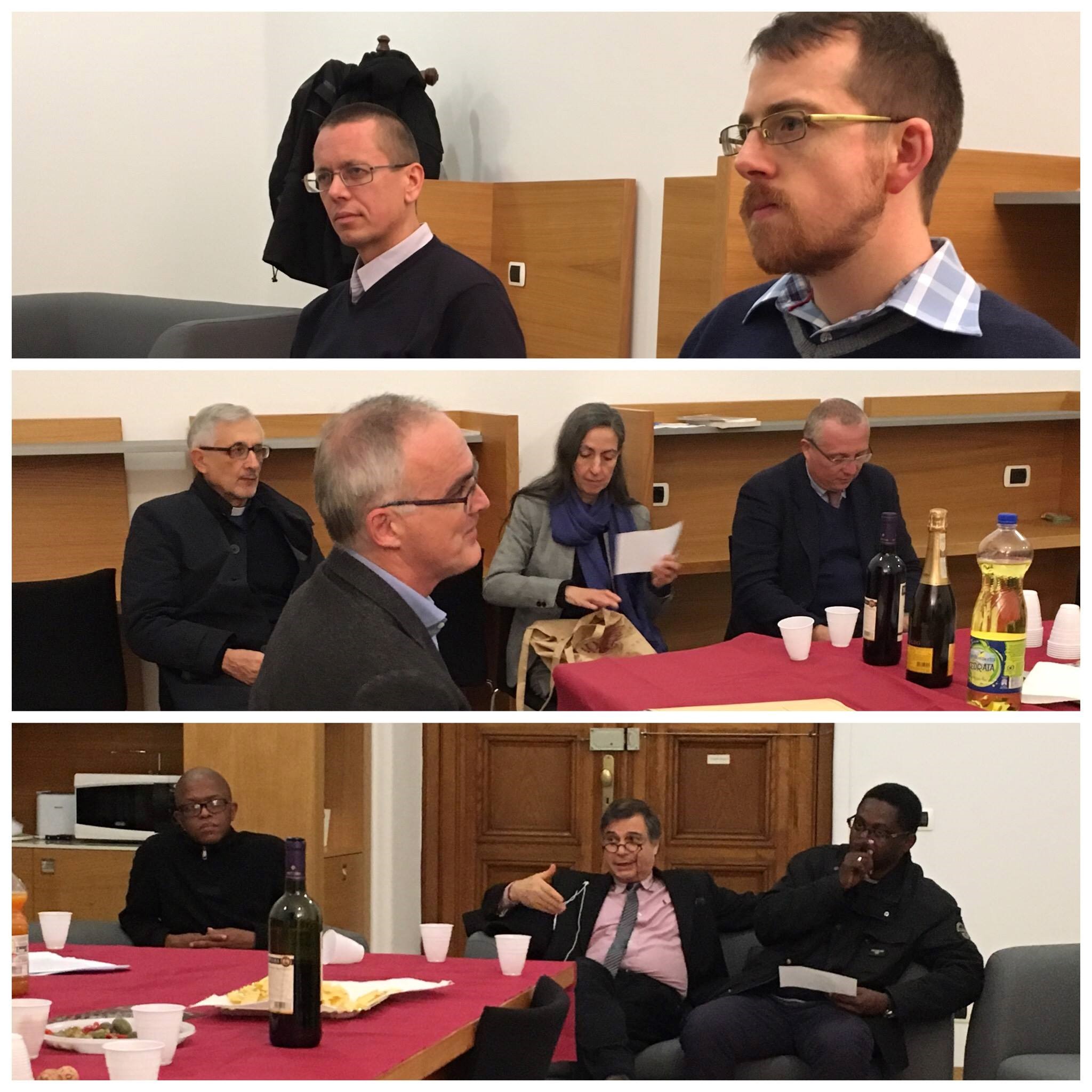 The Lonergan Club is comprised of Gregorian professors, staff, students, and external guests who share an interest in Lonergan. The club meets once a month, throughout the school year, to discuss different Lonergan topics. Parting from a select article or reading, an invited animator leads the group to a deepening and participative discussion. This is a good opportunity to deepen one’s understanding of Lonergan and, in the process, to also find friends in the field
The Lonergan Club is comprised of Gregorian professors, staff, students, and external guests who share an interest in Lonergan. The club meets once a month, throughout the school year, to discuss different Lonergan topics. Parting from a select article or reading, an invited animator leads the group to a deepening and participative discussion. This is a good opportunity to deepen one’s understanding of Lonergan and, in the process, to also find friends in the field
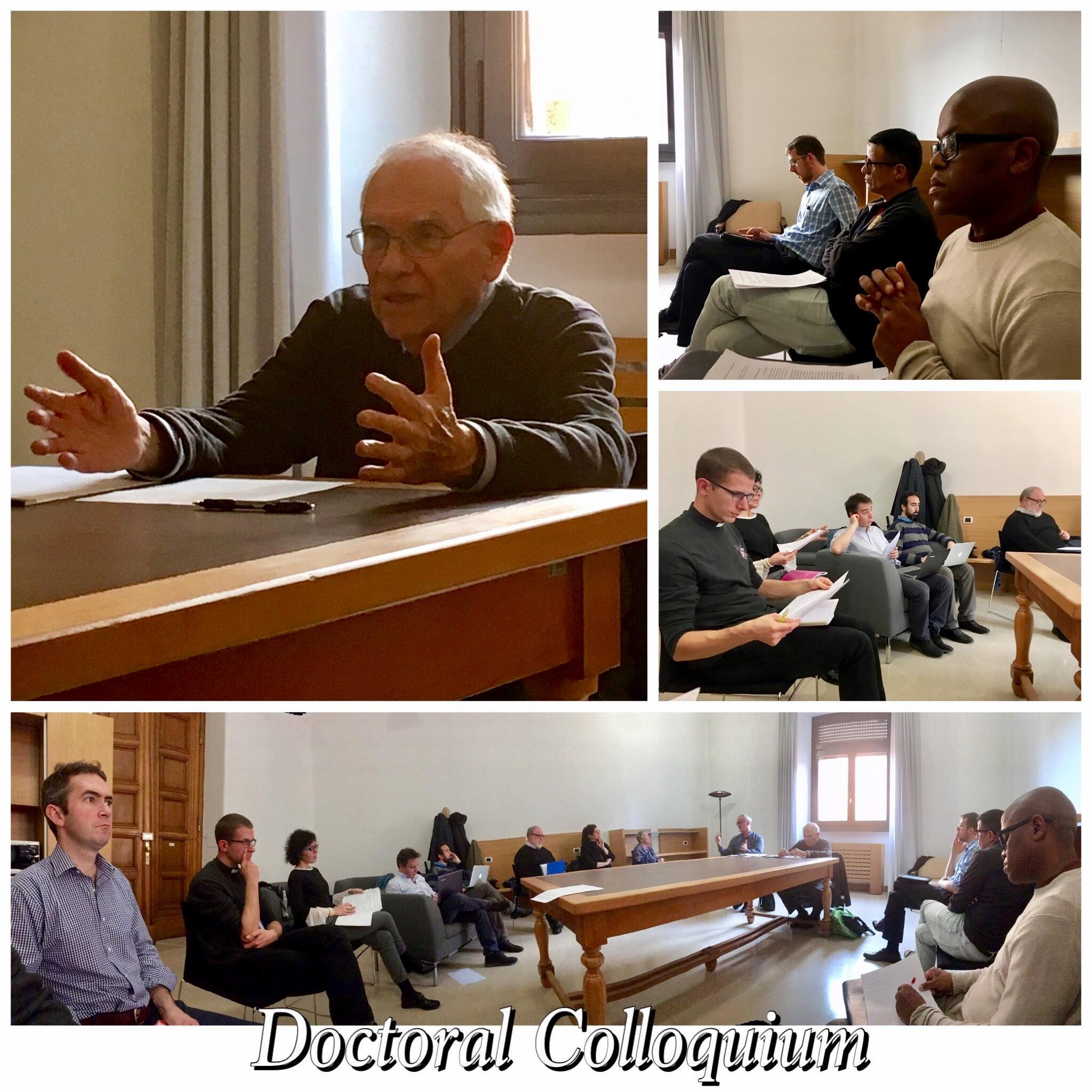 The Doctoral Colloquium is a more specialized and academic session among doctoral students of the Consortium (PUG, PIB, PIO) who study or use Lonergan in their dissertation writing. Guided by competent professors, the students are guided in the proper use of Lonergan’s method in theology.
The Doctoral Colloquium is a more specialized and academic session among doctoral students of the Consortium (PUG, PIB, PIO) who study or use Lonergan in their dissertation writing. Guided by competent professors, the students are guided in the proper use of Lonergan’s method in theology.
The Annual Lonergan Lecture is a formal academic conference, organized and sponsored by the Gregorian University, wherein a Lonergan expert is invited to discuss a particular theme. To date, we have already hosted two lectures.
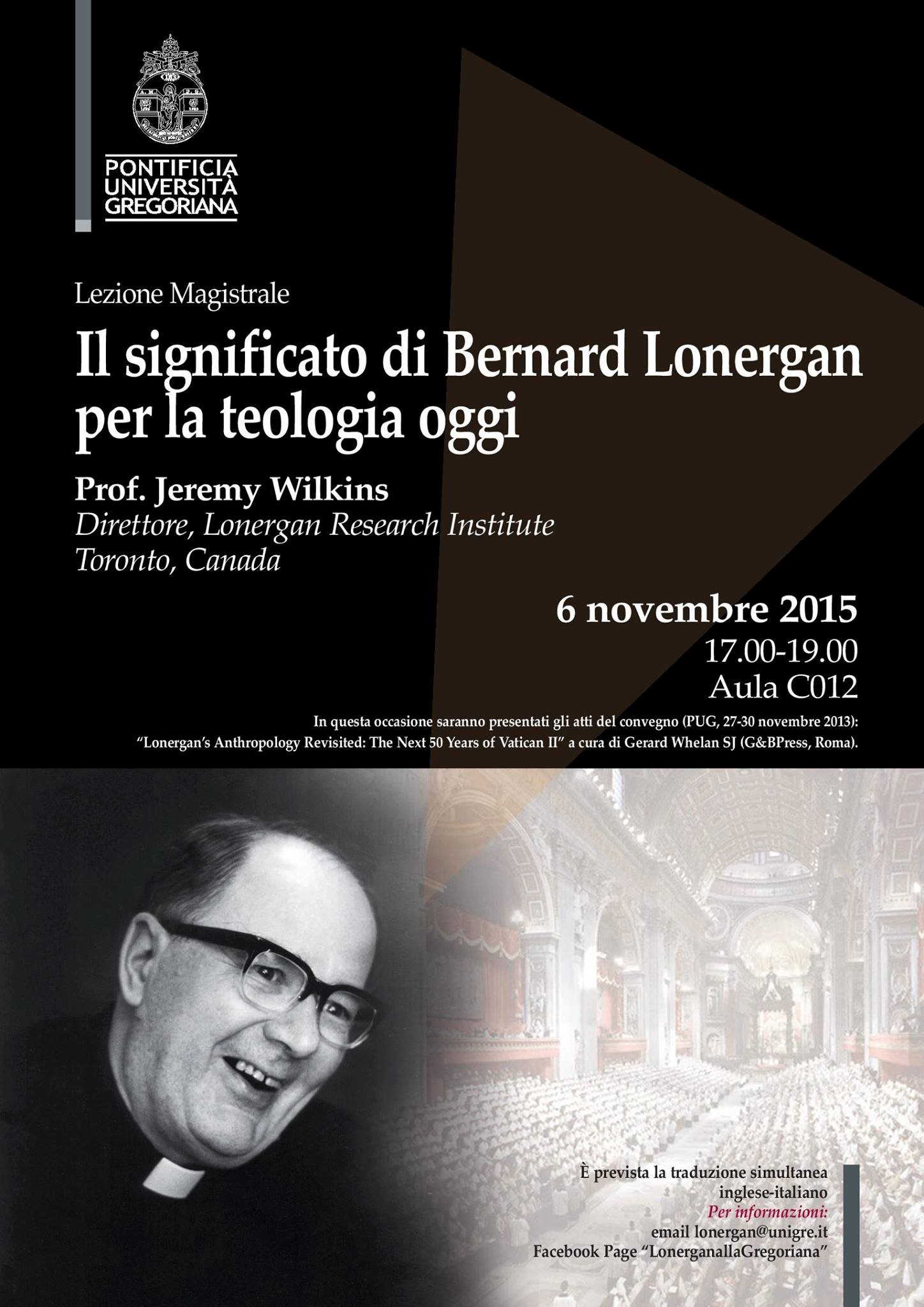 The first was given by Professor Jeremy Wilkins, then director of the Lonergan Research Institute, on 26 November 2015. His talk was entitled: “The Significance of Lonergan for Theology Today”. You may watch the video here: https://www.youtube.com/watch?v=2tSeElCkEo4
The first was given by Professor Jeremy Wilkins, then director of the Lonergan Research Institute, on 26 November 2015. His talk was entitled: “The Significance of Lonergan for Theology Today”. You may watch the video here: https://www.youtube.com/watch?v=2tSeElCkEo4
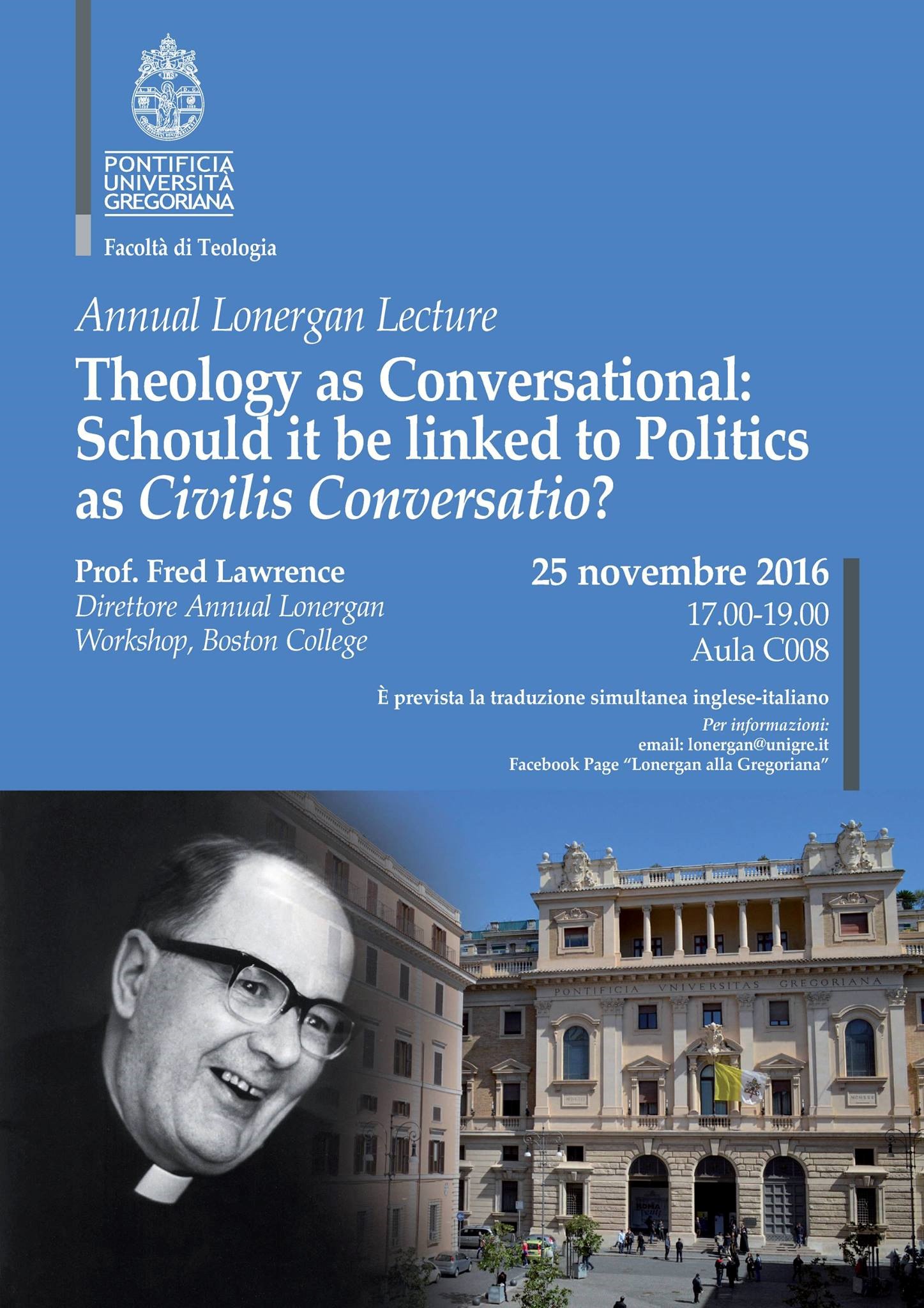 The second Lonergan Lecture was delivered by the director of the Annual Lonergan Workshop, Frederick Lawrence, on 25 November 2016. He talked about: “The New Fundamental Theology in a Political Mode: Lonergan’s Possible Contribution”. You may watch the video here:
The second Lonergan Lecture was delivered by the director of the Annual Lonergan Workshop, Frederick Lawrence, on 25 November 2016. He talked about: “The New Fundamental Theology in a Political Mode: Lonergan’s Possible Contribution”. You may watch the video here:
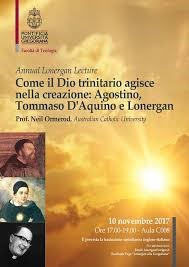 The third intervention was given by Prof. Neil Ormerod. The title was: "How the Trinitarian God acts in Creation: Augustine, Thomas Aquinas and Lonergan". You can follow the speech at the following address:
The third intervention was given by Prof. Neil Ormerod. The title was: "How the Trinitarian God acts in Creation: Augustine, Thomas Aquinas and Lonergan". You can follow the speech at the following address:
 On November 9, 2018, the fourth annual conference was held, with the theme: "The Natural Desire to See God: Natural or Supernatural". The reflection was animated by Prof. R.S. Rosenberg, of Saint Louis University.
On November 9, 2018, the fourth annual conference was held, with the theme: "The Natural Desire to See God: Natural or Supernatural". The reflection was animated by Prof. R.S. Rosenberg, of Saint Louis University.
 The fifth annual conference of the Lonergan Project will be held on 15 November 2019. To guide it, c’è was Msgr. Valter Danna. The theme: Pope Francis and Lonergan: horizons for the future of Christianity.
The fifth annual conference of the Lonergan Project will be held on 15 November 2019. To guide it, c’è was Msgr. Valter Danna. The theme: Pope Francis and Lonergan: horizons for the future of Christianity.
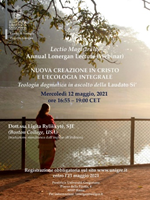 The sixth Lonergan annual lecture was held in May 12th 2021 in mixed-mode due to the pandemic. The title was “The New Creation in Christ as the Foundation of an Integral Ecology”, delivered by Ligita Ryliskyte, from Boston College
The sixth Lonergan annual lecture was held in May 12th 2021 in mixed-mode due to the pandemic. The title was “The New Creation in Christ as the Foundation of an Integral Ecology”, delivered by Ligita Ryliskyte, from Boston College
https://www.youtube.com/results?search_query=Annual+Lonergan+Lecture+Ligita
<
This Institute was launched in Marquette University, Milwaukee, USA, on March 31 2017. It has as its aim to animate a long-term process of coordinated research and publishing on a variety of themes using Lonergan's method of functional specialisation. The Dean of Theology of the Gregorian, Fr. Dariusz Kowalczyk SJ., has agreed that the Theology Faculty of this university will be one of the academic entities that commit themselves to collaborate with this Institute already from its launch. This is still early days for implementing this collaboration. What might it mean? Research commitments by Gregorian professors? Doctoral students choosing topics to coordinate with themes from the research being coordinated by the Institute?
For more information: http://www.marquette.edu/theology/marquettelonerganproject.shtml
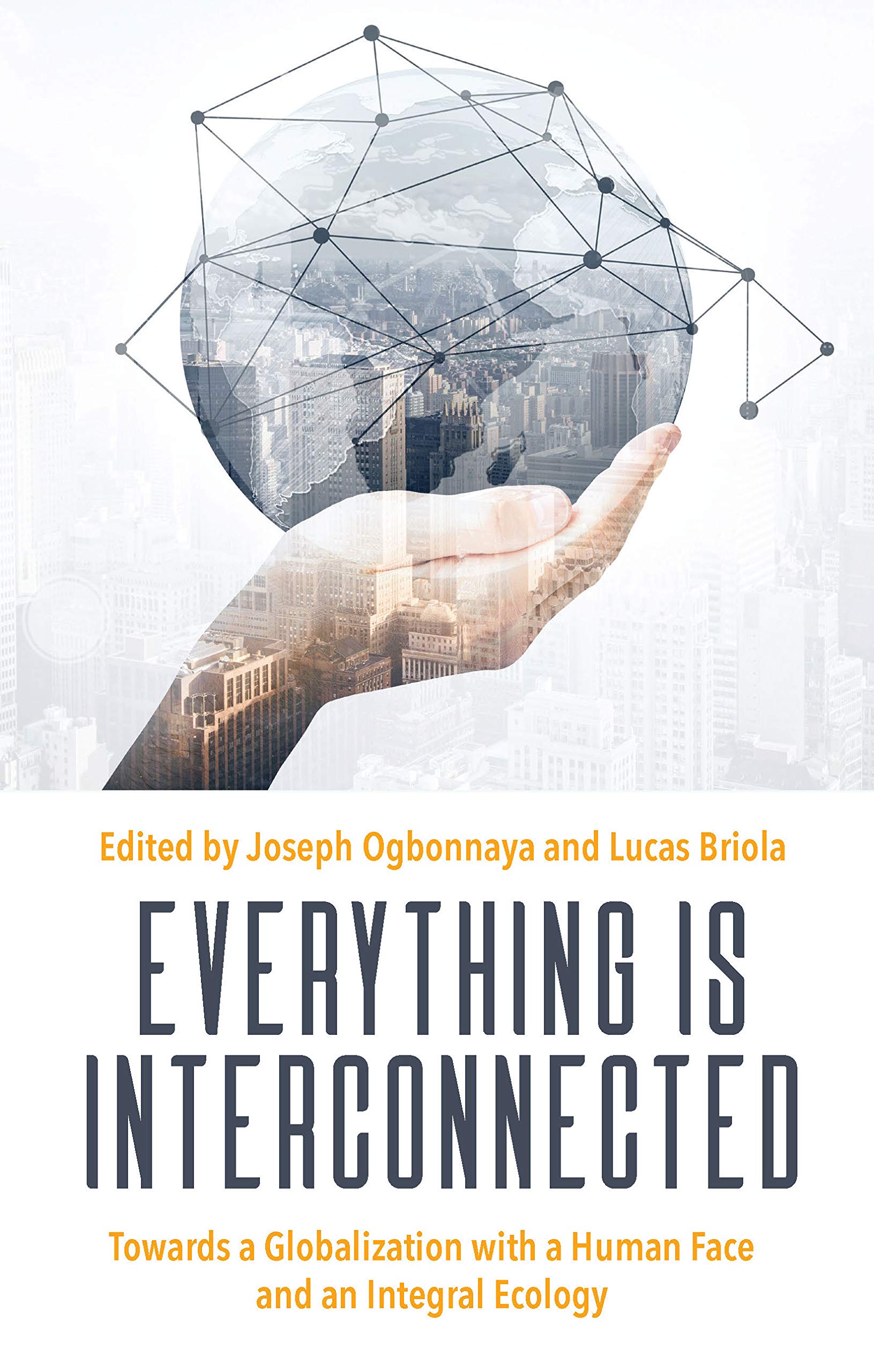
J. OGBONNAYA – L. BRIOLA, ed., Everything is interconnected. Towards a Globalization with Human Face and an Integral Ecology, Marquette University Press 2019.